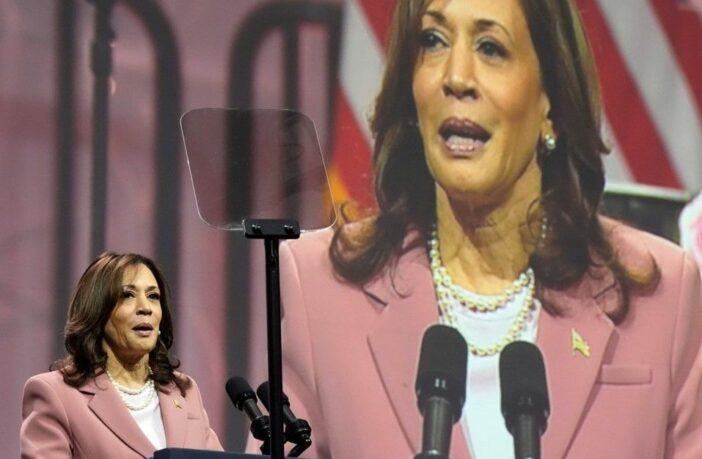A game-changing, culture-shifting idea is rarely introduced by a candidate for elected office. But that’s what happened recently en route to Election 2024.
Democratic Party nominee for president, current VP Kamala Harris, recently announced that if elected she will remove the college degree requirement for thousands of government jobs. Her point: there are more ways than a college education to gain the knowledge and skills needed to be job-ready.
“As president, I will get rid of the unnecessary degree requirements for federal jobs to increase jobs for folks without a four-year degree,” said Harris during her speech in Wilkes-Barre, Pennsylvania.
Harris also said she would push other industries to do the same.
When she announced this, during a stump speech, it was received with thunderous applause. However, there has barely been a mention of this unique platform position outside that moment, even though more than 62% of Americans age 25 or older did not hold a bachelor’s degree, according to 2023 U.S. Census Bureau data. Moreover, Americans without college degrees made up three out of five voters in 2020.
I contend that Harris’s push to remove the college degree requirement may be one of the most revolutionary positions a presidential candidate has ever posited… which may be why the mainstream media has responded to it with near-total “radio silence.”
WHY A BIG DEAL
Harris’s position is radical and revolutionary because she is talking about ending one of the most ruthless and complete monopolies on the planet today—the university system. The higher education goliath has gone unchecked and unchallenged for so long that it has 1) put its primary customer base into a lifetime of debt while simultaneously 2) underpaying its most prestigious frontline workers so egregiously that many are homeless, sleeping in their vehicles, and working multiple extra jobs just to stay poor.
By removing the college degree requirement from certain government jobs (and potentially from hundreds of thousands of other jobs from other industries), Harris is potentially bringing down the cost of the product that is at the root of the university system’s ability to lead teenagers into a lifetime of college debt and allow those institutions to underpay full, assistant, tenure, untenured and adjunct professors. Why? Because teachers want to teach, and the only place to do that is where the students are.
It’s 1920s robber baron-level monopoly-type stuff that has gone unchecked for decades until Harris’s announcement.
ACKNOWLEDGEMENT OF OTHER MOVEMENTS
The Harris plan is, in a way, an acknowledgment of movements already afoot; like the groundbreaking efforts of journalism legend Karen Hunter and Howard University professor Dr. Greg Carr. This dynamic duo is fond of saying they have “jailbroken the institution” by offering a place for deep learning and contemplation via their powerful and innovative Knubia and Knarrative platforms that welcome one and all without the debt-inducing tuitions and fees and institutional barriers that have stood for centuries to protect the myth of white supremacy.
Moreover, the resurrection of vocational education has signaled a shift in society away from the idea that the only way to make a living and a life is with a college degree in hand.
REDUCED TUITION COSTS
Harris’s position acknowledges that there are other venues besides college campuses to gain the knowledge and skills employers crave from their people. The removal of a college degree requirement sets up a situation where the university system has to compete for customers (potential students).
This competition means members of the university system will have to bring down tuition costs and raise salaries for the best professors to improve their appeal to potential students (customers) who are no longer choosing between one college or another, but now choosing between college or an apprenticeship or the military or going directly to work in a family business or some other industry where they can gain skills and experience immediately.
EMPLOYMENT BOOST
Moreover, Harris’s push stands to put thousands of people in the employment game who were once excluded due to the college degree requirement. Such a move will provide more Blacks, Latinos, and working-class whites with pathways to better economic realities while simultaneously expanding the talent base from which industries have to choose. We’re talking about a win-win for both employers and employees.
IMPROVED COLLEGE EXPERIENCE
Colleges and universities will also benefit from this culture shift. Freed from their enslavement to capitalist profits, college campuses can once again become dynamic and vibrant places of learning (like Knubia and Knarrative). Students less burdened by education costs and the need to work multiple jobs can then taste the full college experience and all the benefits that come with being free to be full-time knowledge seekers.
With professors being paid much closer to their value and freed from the assembly-line factor system teaching/evaluating paradigm, they can also enjoy more space and opportunity to expand their own knowledge base, which benefits them, their students and the institution at which they work.



